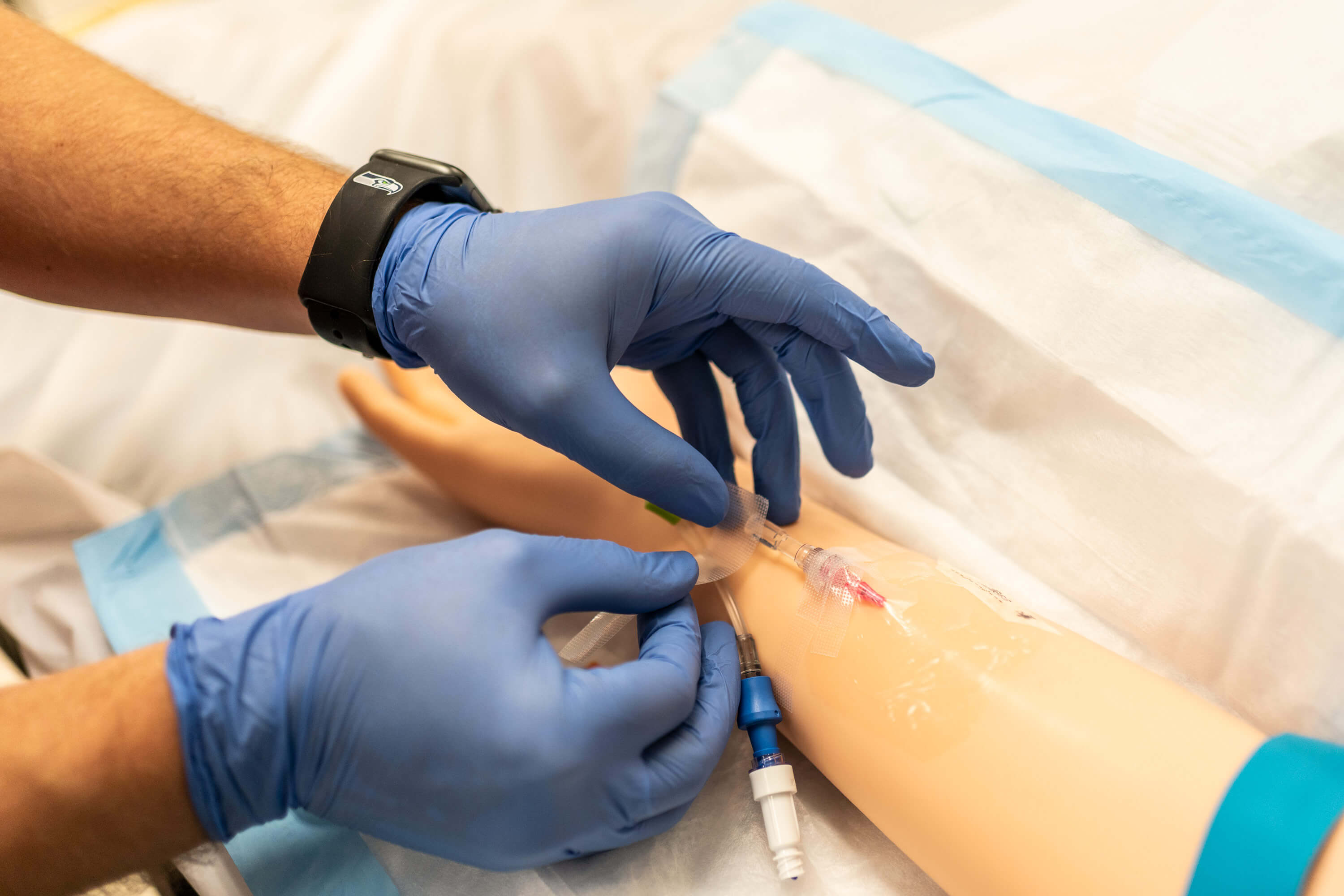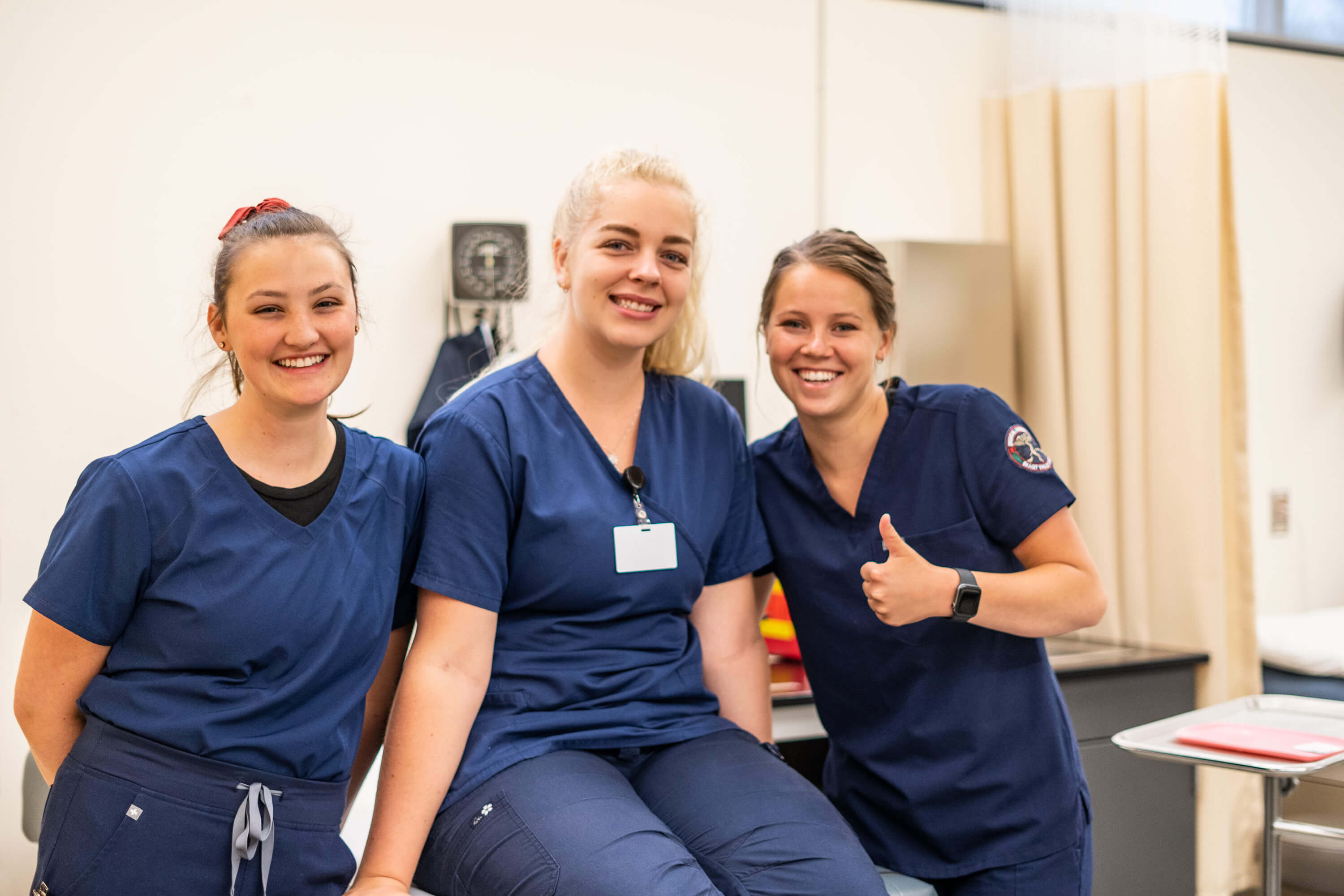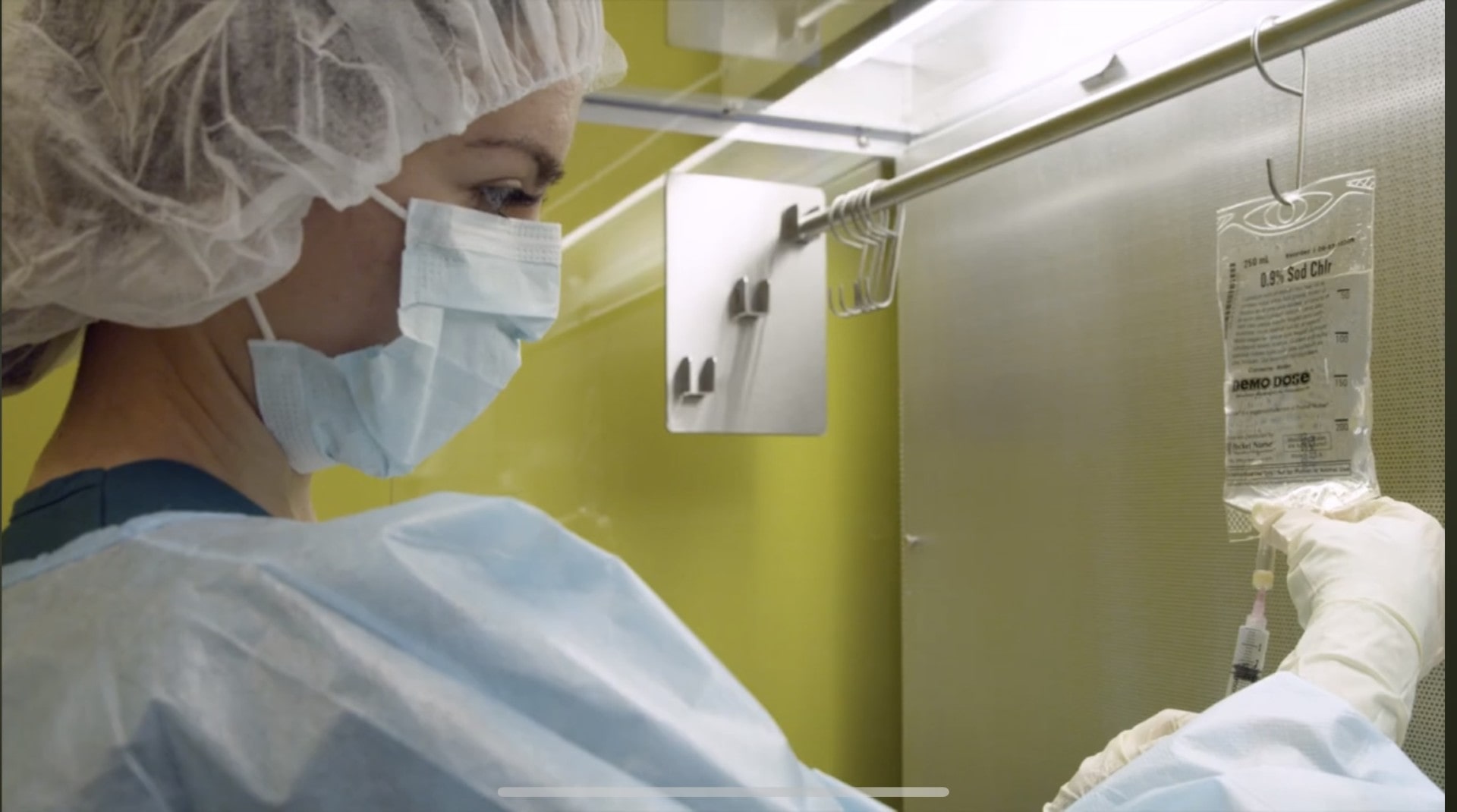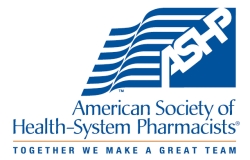Allied Health Education
Healthcare is the second fastest growing industry in the United States with opportunities in direct patient care and support occupations. Whether you are looking to enter the healthcare field or supplement your current skills, we have designed our programs to meet your needs.
Program Learning Outcomes
- Demonstrate knowledge of foundational theory in clinical and administrative standards as it applies to the Medical Assistant’s scope of practice.
- Apply law and ethics to the medical assisting scope of practice and patient care.
- Perform clinical and administrative skills accurately and consistently.
- Demonstrate the ability to manage workflow given varied patient scenarios and clinical situations.
- Recognize the medical needs of diverse populations; demonstrate cultural competence and appropriate communication with patients and the healthcare team.
- Model the qualities of valued healthcare team professionals.
- Interpret health record documentation using knowledge of anatomy and physiology, disease process, pharmacology, and medical terminology to accurately assign diagnostic and/or procedural codes, including modifiers, according to current coding and reporting requirements to optimize reimbursement.
- Utilize ICD-10-CM, CPT, and HCPCS coding manuals to correctly code diagnoses, services, procedures, supplies, materials, injections, and durable medical equipment.
- Accurately perform administrative tasks, including bookkeeping procedures and completion of clerical and operational forms.
- Demonstrate an understanding of managed care and other health insurance types and specify how they differ from traditional billing methods of private medical practice.
- Accurately prepare UB-04 and CMS-1500 claim forms for submission in a manner that will minimize rejection by insurance companies.
- Accurately and precisely, interpret and fill prescriptions from start to finish.
- Explain the top 200 drugs including brand to generic, classification and associated disease states.
- Perform sterile and non-sterile compounding procedures safely and to industry requirements.
- Practice ethically and within the laws governing pharmacy practice both nationally and in Washington State.
- Demonstrate foundational knowledge of standards for pharmacy waste management practices, safety, and controlled substance handling.



Learn from Experienced Healthcare Professionals
Our instructors, experienced health care professionals, will guide you through classroom and laboratory activities to learn about the health care environment, personal skills to make you successful in the health care workplace, and the specific skills required in your chosen profession. Our affiliations with local health care facilities will enable you to obtain the clinical hands-on experience to hone your skills in the health care environment.
Why Skagit Valley College?
- State of the art science and health occupations training facility
(Laura Angst Hall). - Accredited by the Commission on Accreditation of Allied Health
Education Programs. - A variety of program specialties with multiple degree and certificate options.
- All programs include hands-on training and clinical simulation.
- Meets the requirements of Washington State’s Healthcare Assistant Law.
- Exceptionally high scoring on American Association of Medical Assistants
National Certification Exam. - Flexible class schedules for working professionals.
- Clinical experiences in a variety of health care settings provide students with real world experience and create employment networks.
- Student graduates are prepared to take national industry recognized certification exams.
Prerequisite Courses May Be Required
Prerequisite courses in the structure and function of the human body, basic medical terminology, computers skills and HIV/AIDS and CPR for Healthcare Professionals may be required for admission to some programs. Please consult the individual program planning sheets or an adviser for more information.
Background Check and Drug Screening
All students entering health care programs must pass a multi-state, multi-zip code criminal background check as well as a drug/illegal substance screening. This requirement is based on medical industry standards and Washington State laws protecting vulnerable populations (RCW 43.43.880 and 43.43.842). Drug screens and background checks are required by clinical agencies where students complete their practicum experience. Students should be aware that certain gross misdemeanors and felonies may disqualify them from participating in practicum and unable to complete their certificate or degree program. Future employment opportunities in the healthcare field may also be affected. Students will complete the background check and drug screening process when enrolled in AHE 103 (AHE 130 for Pharmacy students). Students who are unable to pass these screenings will be removed from the program.
Immunizations
One of the requirements of our clinical partners for participation in the practicum experience is immunizations. All immunizations need to be complete before you are able to enroll in AHE113, AHE 136 and AHE223. Below is a list of immunization required by our clinical partners:
- Negative TB test (within the last 9 months of starting the practicum quarter)
- Tdap (within the last 10 years)
- 2 MMR vaccinations or titers for each category showing immunity
- 2 Varicella vaccinations or a titer showing immunity
- Hepatitis B vaccination series (2 or 3 doses depending on what series you choose)
- Annual Flu Vaccine
*You may be required to show proof of two COVID vaccines to your clinical site host.
Occupational Exposure
Students planning to enter any of the healthcare professions are advised that as a health care provider they are at risk for exposure to bloodborne pathogens. Tasks and procedures performed by the healthcare professional involve risks classified by the Center for Disease Control in the following way:
- Category I – Direct contact with blood or other bodily fluids to which universal precautions apply.
- Category II – Activities performed without blood exposure but exposure may occur in emergencies.
- Category III – Task/activity does not entail predictable or unpredictable exposure to blood.
Practicum Experiences
Students enrolled in the Medical Assistant and Pharmacy Technician programs are required to complete a practicum experience. Practicum experiences are at local healthcare facilities which may involve travel to various regions of Skagit, Whatcom, Snohomish, and Island counties. All students accepted into the practicum experience must have reliable transportation. All practicum experiences will be under the supervision of personnel at the medical facilities. Students will not be allowed to choose their practicum site. The department chair selects the facilities used for practicum sites and places qualified students.
Program Accreditation
Medical Assistant
The Medical Assistant program is accredited by the Commission on Accreditation of Allied Health Education Programs (www.caahep.org) upon the recommendation of Medical Assistant Education Review Board (MAERB). The address is Commission on Accreditation of Allied Health Education Programs (CAAHEP), 25400 U.S. Highway 19 North, Suite 158, Clearwater, FL 33763; the phone number is (727) 210-2350 (www.caahep.org).
Upon successful completion of the Medical Assistant Certificate or AAS degree, graduates are then eligible to take a national certification exam approved by the Allied Health Department. Satisfactory completion of the national exam is a requirement to apply for certification in Washington State (RCW 18-360).
Medical Billing and Coding
Upon successful completion of the Medical Billing and Coding AAS degree or certificate, graduates are eligible to sit for the Certified Professional Coder (CPC) exam. The CPC credential is one of the American Academy of Professional Coder’s (AAPC) national certification examinations for healthcare school graduates to demonstrate proficiency across a wide range of outpatient services using all codes sets (CPT, ICD-10-CM, and HCPCS).The address of the certifying organization is, AAPC 2233 S Presidents Drive, Suite F, Salt Lake City, UT 84120.
Pharmacy Technician
The Pharmacy Technician certificate program is approved by the Pharmacy Technician Quality Assurance Commission of Washington State. The program is recognized by the Pharmacy Technician Certification Board (PTCB) allowing students to sit for the Pharmacy Technician Certification Exam (PTCE) or other national exams that are required to obtain the Pharmacy Technician Credential. This program meets or exceeds the goals and objectives of the American Society of Health Systems Pharmacists.
